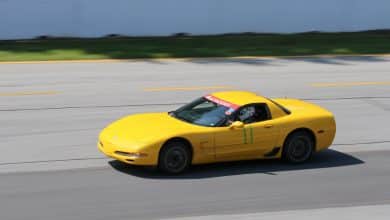Becoming A MSF Certified HPDE/Track Day Instructor

Here at ShiftAtlanta one of our primary purposes to help provide opportunities that get people out doing more with their car, particularly driving. So when I learned that I could be become an HPDE certified instructor, I was immediately intrigued. I’ve long been interested, but never really thought this was something I could just do without being a serious HPDE instructor.
Earlier this year I learned about the Motorsports Safety Foundation (MSF) Instructor Certification. I jumped at that chance to get certified. When I started this process I wasn’t sure I was really a candidate, but figured it would make a good article.
For this article I wanted to document what the process has been like, where I’m going from here and why I hope others who are interested consider getting involved. I should note I’m not affiliated with MSF in anyway and they’ve had no input into this article. though if I hear anything I’ll add their comments in an update.
Finally, I intend for this article to share my general experience. This is not legal, safety or operational advice.
What Is MSF Instructor Certification
First, I should note that MSF is not the only way to become an instructor. Also, becoming MSF certified does not automatically make you an instructor. Like most certifications it rates general knowledge and set standards, but it does not make you a great instructor without the driving experience, tools and people skills to actually help people drive and drive safely.
As quoted directly from the MSF website:
The CERTIFIED program is a nationally recognized, independent certification program similar to the PADI program for open water diving. It establishes a path of continuing education and provides a formal record of achievement for your efforts as an HPDE Instructor.
The program is defined by established levels of achievement with each level building upon the next to allow progression through the ranks of the HPDE instructor community.
Recommended Knowledge Prerequisites
Whether or not you choose to get certified through MSF, if you want to be an HPDE instructor I’d recommend you have the following knowledge prerequisites.
You should have a strong understanding of:
- On track driving with real world experience
- Terminology and theory of track driving including basics of car control
- A dedication and understanding of safety – operating safety, driving safety, car control safety and safety equipment.
- Knowledge of flags and their meanings, as well as what to do on the track in situation ranging from contact to mechanical failure
I’d also recommend that you have some level of competitive or organized driving experience, particularly as part of a team. While probably not a requirement, as you could easily gain a lot of these skills through track days or membership programs, I do feel the experience of working in a competitive open passing environment is valuable to situational awareness. Also you’ll experience more flags and track interrupting incidents than you would at most track days. In addition, it also gives you experience communicating with other drivers/team members, discussing the the track, car and other conditions with teammates while working with a lot of personalities types – often in an emotional charged situation. Which is pretty much what you’ll be doing while instructing.
Certification Does Not Replace Resume

Another important thing to consider is that certification is not a replacement for a resume. Not just in terms of required skills or personal experience, but also in terms of being able to articulate your experience to HPDE and track day operators.
In fact, don’t expect to show up with an MSF Level 1 certification to a track day operator, without the resume and experience both driving and potentially instructing, and expect to be considered an instructor. Also, the MSF certification (particularly level 1) does not automatically give you everything you need to be a coach or personal instructor.
Lastly, the MSF certification does not dive into the tools (like communication systems) that make a huge difference for practical instructing. You’ll only get this from the experience of doing instruction, and you’ll only get a lot of it from working with other instructors.
MSF Certification Levels Explained
Before we dive further into why and how to become certified, and what that experience was like, here is a brief rundown of the MSF certification levels. Currently there are two publicly available levels, though based on the credential it appears they are planning for additional levels in the future.
MSF Level 1
MSF Level 1 certification is the initial level. As described from the MSF website:
It is a required course which is taught online, and even if you have extensive experience, Level 1 will act as a refresher and define the terms and processes that are consistent throughout the CERTIFIED program. Upon completion of this course, you are qualified to attend an Event Organizer-led, hands-on Level 2 instructor training program.
MSF Level 2
MSF Level is a combination of an individual who has meet Level 2, but also where acknowledged by an organization that is MSF Level 2 certified. As described from the MSF website:
Level 2 is different than Level 1 (although Level 1 is a prerequisite to Level 2) in that the Event Organizer’s training program is CERTIFIED by MSF, not the individual. The Event Organizer achieves this by meeting the minimum standards for training as established by MSF. The CERTIFIED Event Organizer then puts on Level 2 instructor clinics, and at these events the Event Organizer grants Level 2 certification to the participants who meet or exceed the standards in their training program. The Organizer provides this list to MSF and we then provide a link to the Event on Motorsport Reg to the Instructor.
Why Become A Certified HPDE/Track Day Instructor
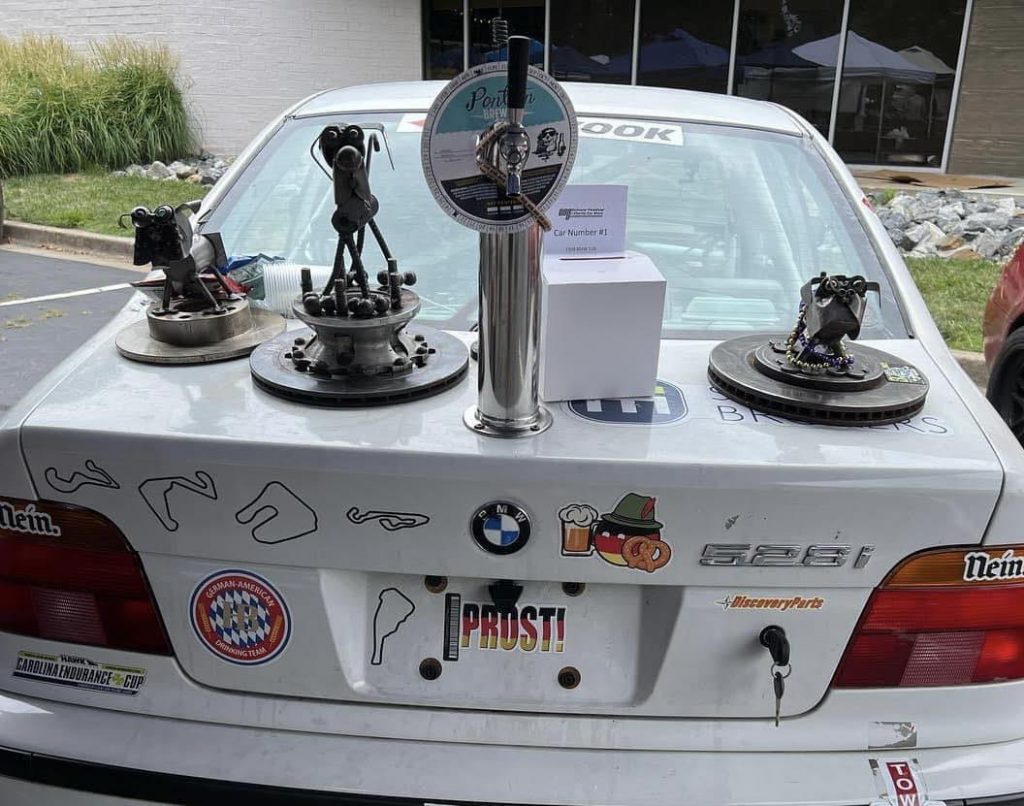
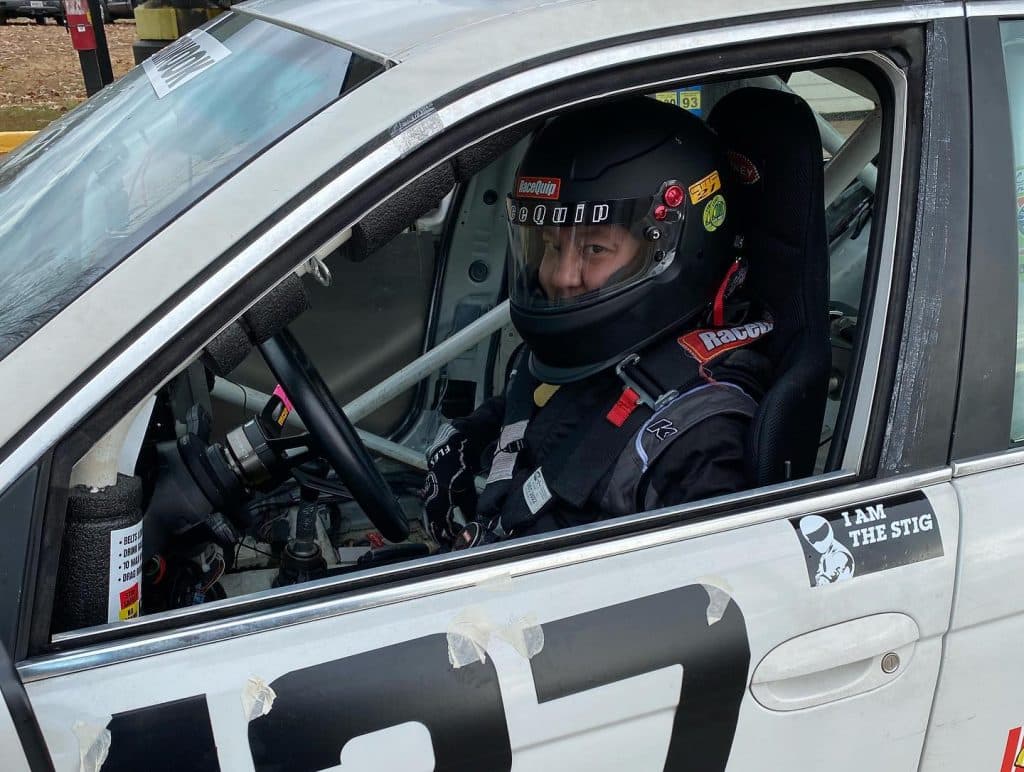
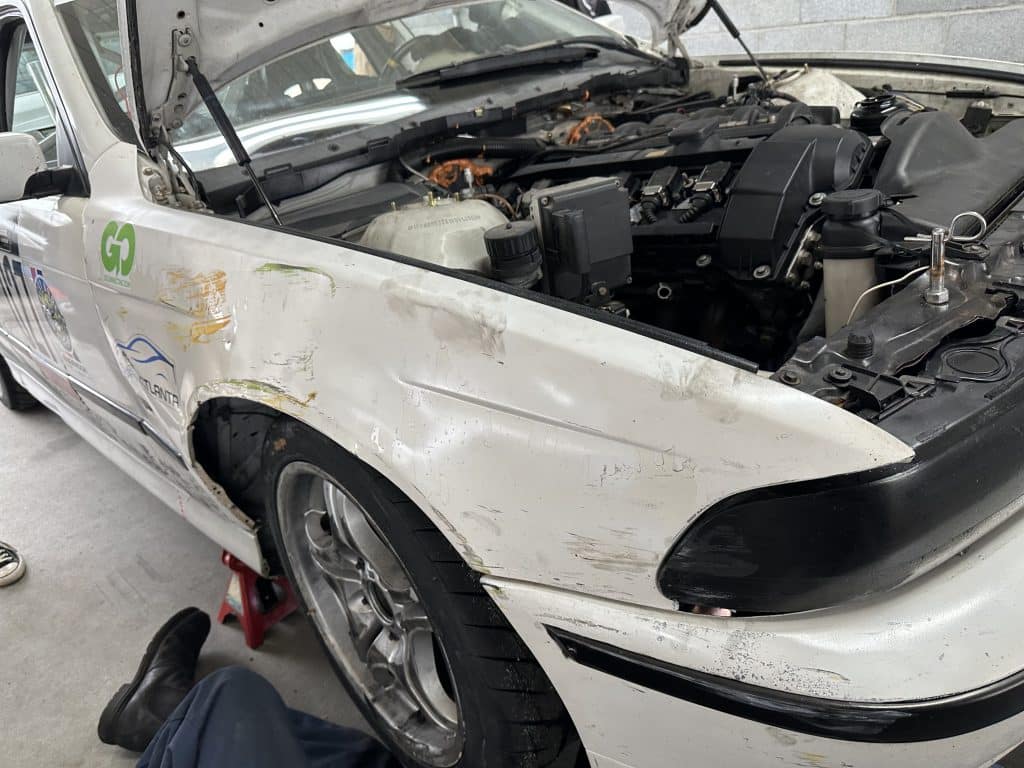

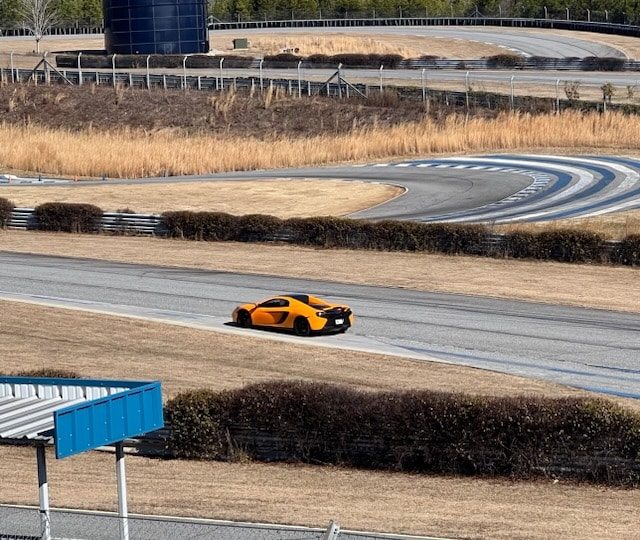
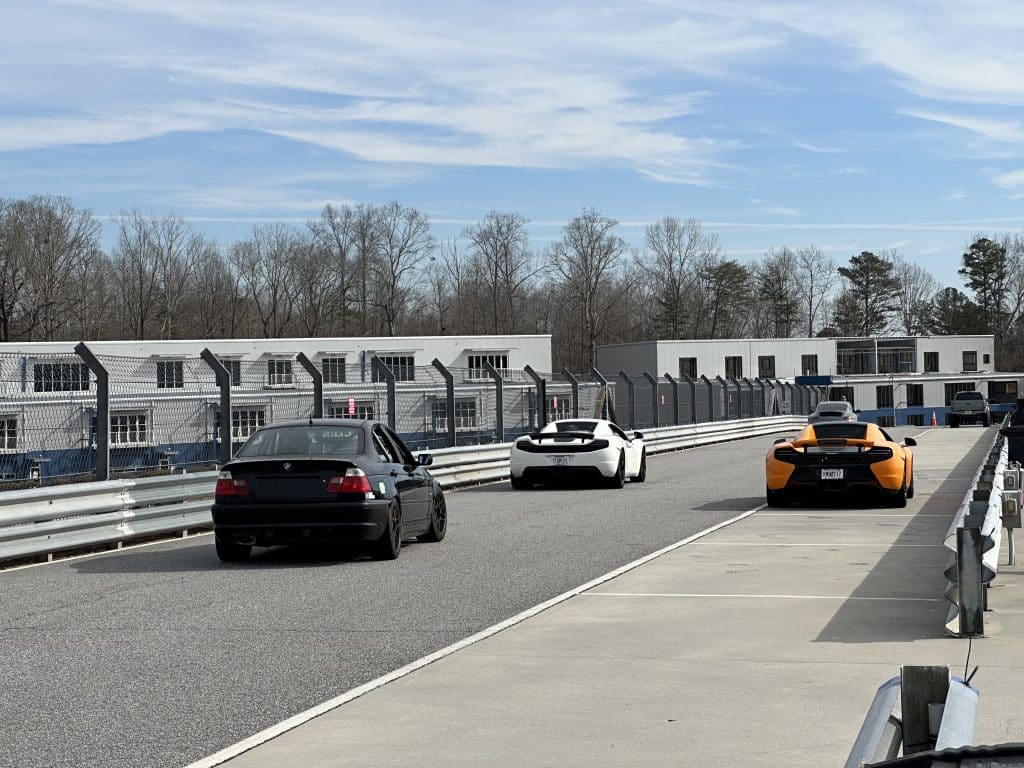
I had a number of reasons to become a certified instructor. Being a traditional HPDE instructor for free track time wasn’t one of them, even if that is the top reason most people become an HPDE instructor. ShiftAtlanta does not intend to become a track day operator, and in fact we encourage you to check out our awesome local partners who do that better than we could. I’m also not looking to be a regular HPDE instructor on the weekends.
So why bother, other than writing an article? I had several reasons, First, I spend a lot of time around track day events, as well as occasionally meet with friends and clients for driving sessions at the track, many of who have never gone on track before. We actively try to encourage and get people who have never been on track to give it a try. In addition, we routinely try to get new people into endurance racing through our community programs. These drivers often have varying degrees of track driving experience, so being able to provide some instruction as a part of the process is helpful. Lastly, it was an opportunity to challenge myself to become a better driver. The knowledge needed to not only pass the certification test (more on that), as well as the language needed to articulate driving instruction gave me the opportunity to develop my own understanding of driving and driving theory.
Another piece of what I do is selling track day insurance. And not just to track day attendees, but also insurance for HPDE instructors and coaches.
Getting certified made sense. It helped give me an academic program to go with my personal, hands on experiences. I also get to work on and improve how I interact with people at the track – whether for business or just getting them involved with our driving teams.
For most people reading this article, getting certified is another important piece to add to your resume. The benefit is usually free track time. With most organizers you spend half of the day instructing (side seating), and the other half with free time to drive yourself.
Still, if you do decided to take this up, even for free track time, remember you influencing another driver, one that likely has no where near the experience you do. How you approach it will have an impact on how they carry themselves at the track in the future. I highly recommend you look at this as instructing first, and free track time second. And as you are spending the rest of your day on the track, keep an eye on the progress your student makes. Don’t be afraid to continue to provide feedback, particularly relating to safety or track conduct throughout the day, even after your formal time instructing has ended.
The MSF Level 1 Certification Online Course And Test
Once I decided to go through the MSF certification process, the first step was registering for the MSF Level 1 certification online course and test. This is pretty easy to do and can be done via motorsports reg. The fee is $50.
Within a couple of days you’ll receive a online to an LMS (learning management system). The MSF online course contains a mixture of recorded videos, documents and section assessments. You watch a video and read any associated material before taking a brief assessment for the section. You must pass the assessment before moving on to the next section in the course.
The courses cover a variety of topics including introduction, safety (which is big and a repeated theme), how to interact with your students, car control and why HPDEs in general matter.
Brake, BRAKE, BRAKE!
One thing I’ll give the test a lot of credit for is that for the things they really want to drive home, like safety, they get it to stick with you.
Another one of the sections that was particularly interesting and valuable were how to deal with students. Dealing with over and under confidence, maintaining authority and what to do if you just can’t connect or reach your student.
It’s clear MSFs goal here isn’t just focused on checking the boxes of being an instructor but focusing on teach strategies, safety and overall understanding of car control.
The Final Exam
After completing the course videos, reviewing documents and doing the section assessments you have a final exam. While many of the questions were straight out of the course work, there were a number of questions, particularly around car control, that was not covered in the videos. This meant if you didn’t have the prerequisite knowledge you weren’t going to pass.
The MSF exam covers basics of car control. What the impact of weight transfer had on traction, how trail braking impacted corner experience. What I found interesting was many of these car control topics were NOT covered in the course material. It was experience you had to bring with you. There were even a couple of places where it challenged my own experience, or at least my ability to articulate it. And yes, this was very much on the test.
A passing score of 90% is required to pass the course and become certified. I actually score an 88% the first time. I was able to retake the test and obtain a passing score of 90% on the additional try. One interesting thing that may have been unique to me was that the test errored at the final step. It registered the 90% success, but did not mark the test “complete” in the system. I wound up having to email support. While MSF was responsive, it took a number of weeks for them to resolve the issue. And even then, it ultimately involved them manually processing my credentials.
Getting Credentials

Upon passing the test I knew I was certified. However, for the general public to be able to validate that certification the MSF foundation had to update their directory and mail me my ID card. This processing took a shocking amount of time. I took the certification test at the end of February 2023. They resolved all of the backend issues and confirmed my certification April 2023. The registration database and ID card showed up in July 2023.
So it was 5+ months from start to finish, which is an exceptionally long time. Others who took the test around the same time, even if they didn’t have the issue, seemed to have the same problem.
It’s my understanding that MSF had some organization challenges meeting demand. The interest in HPDE certifications seems to be substantial. They seem to be working on it. Those issues wouldn’t stop me from recommending people get certifications from MSF, but I would definitely temper expectations.
What’s Next
I’d love to continue my education and obtain my individual MSF Level 2 certification. In addition, I’d love to see ShiftAtlanta be a contributor towards getting some of our local track day operators to achieve their organization Level 2 certifications. This would provide additional local options for other Level 1 certified t HPDE instructors to obtain their individual Level 2 certifications.
In addition, I’m planning to find some additional training opportunities to put the certification to work. I’ve also enjoyed the conversations in the instructors group on Facebook you gain access to with the certification.




